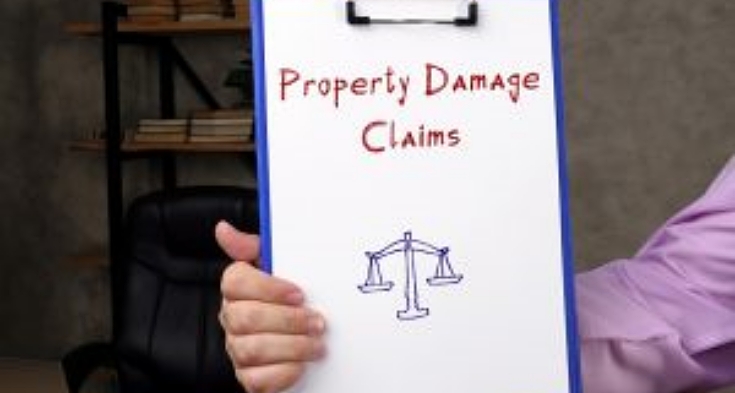
Receiving a notice of investigation or an Osteopathic Medical Administrative Complaint from the Florida Department of Health (DOH) is an incredibly high-stress event. It can feel as though your entire career, reputation, and livelihood are hanging by a thread. As a certified osteopathic physician, you have dedicated years to your practice, and the threat of disciplinary action is understandably overwhelming.
We understand the gravity of the situation.An Osteopathic Medical Administrative Complaint is a notification of an allegation, not a final judgment. You have constitutional rights to due process, and there are clear legal pathways available to challenge these allegations, protect your professional standing, and mitigate potential penalties.
Contact Elevate Legal Services, PLLC today at 561-770-3335 for a confidential consultation, or reach out to usto speak with an attorney about your case.
In this guide, we will break down the complexities of Florida Statutes Chapters 456 and 459. You will walk away with a clear understanding of the difference between an Emergency Restriction Order (ERO) and an Osteopathic Medical Administrative Complaint, the specific risks associated with licensing fraud or out-of-state disciplinary actions, and the exact steps you need to take to mount a successful defense.
The Immediate Threat: Emergency Restriction Orders (ERO), Florida Statutes Chapters 20, 456, and 459
 An Emergency Restriction Order (ERO) is a serious action taken by the Florida Department of Health (DOH) when it believes that a Certified Osteopathic Physician poses an immediate danger to public safety. Issued under Florida Statutes Chapters 20, 456, and 459, an ERO can severely limit a physician’s ability to practice, often without prior notice, leaving the physician unable to perform specific procedures or continue patient care.
An Emergency Restriction Order (ERO) is a serious action taken by the Florida Department of Health (DOH) when it believes that a Certified Osteopathic Physician poses an immediate danger to public safety. Issued under Florida Statutes Chapters 20, 456, and 459, an ERO can severely limit a physician’s ability to practice, often without prior notice, leaving the physician unable to perform specific procedures or continue patient care.
For Osteopathic Physicians, this can have devastating consequences, not only for their practice but also to their professional reputation. Common reasons for an ERO include allegations of malpractice, substance abuse, or violations of ethical or medical standards. However, it’s important to remember that an ERO is not the final word. You have the right to challenge the order through the Administrative Law process, and with proper legal representation, you can present your defense and protect your license.
At Elevate Legal Services, PLLC, we specialize in defending physicians facing Emergency Restriction Orders and other Administrative Complaints. Our experienced legal team understands the complexities of Florida’s Administrative Courts and is dedicated to providing a robust defense to protect your rights and professional future.
Understanding Administrative Complaints Under F.S. 459.015
While an ERO is an immediate emergency action, an Administrative Complaintis the formal start of the standard disciplinary process. For osteopathic physicians, these complaints are typically rooted in specific violations of Florida Statute 459.015.
1. Fraud in Licensure: Violation of F.S. 459.015(1)(a)
The Board of Osteopathic Medicine maintains a zero-tolerance policy regarding the integrity of the application process. A violation of this statute occurs if a physician:
- Obtains or attempts to obtain a license through bribery or fraudulent misrepresentation.
- Secures a license through an error of the Department or the Board.
It is important to note:Even an honest oversight on a renewal form or a discrepancy in medical school documentation from decades ago can be interpreted by the DOH as “fraud.” A professional defense focuses on providing the context and evidence necessary to prove a lack of intent to deceive.
2. “Sister-State” Discipline: Violation of F.S. 459.015(1)(b)
Florida has an expansive reach regarding your professional conduct in other jurisdictions. Under F.S. 459.015(1)(b), the DOH can discipline you if your license was:
- Revoked, suspended, or acted against by a licensing authority in another state or territory.
- Denied licensure by another jurisdiction.
This is a common pitfall:Many physicians settle a minor case in another state simply to “move on,” not realizing that the Florida DOH may view that out-of-state settlement as a valid basis to open a new investigation into their Florida license. If you are facing this,our attorneys can help manage the cross-state implications.
Common Grounds for DOH Investigations
Beyond licensing and jurisdictional issues, osteopathic physicians often face scrutiny for operational and clinical matters that fall under the umbrella of “unprofessional conduct.”
Medical Malpractice and Standard of Care
The DOH frequently investigates complaints regarding “gross or repeated malpractice.” This involves the failure to practice medicine with the level of care, skill, and treatment recognized by a reasonably prudent similar physician.
Prescription Drug Violations and DEA Infractions
With the heightened focus on the opioid crisis, the DOH and DEA closely monitor prescribing patterns. Allegations of over-prescribing controlled substances or prescribing without “medical necessity” are among the most common reasons for a physician to face an ERO.
Substance Abuse and Impairment
Florida Statute 456.076 provides a framework for impaired practitioner programs, such as the Professionals Resource Network (PRN). However, if a physician fails to comply with a program or if their impairment is deemed an immediate danger, the DOH will move toward suspension. Our firm has extensive experience inDOH Administrative Complaints involving impairment allegations.
The Legal Process: Step-by-Step
Understanding the timeline of a DOH complaint can help manage the uncertainty of the process. For most osteopathic physicians, the process follows these six steps:
- The Investigation:An investigator from the DOH Consumer Services Unit will contact you for a statement or records. You should not provide a statement without legal counsel present.
- Probable Cause Panel:A small group from the Board of Osteopathic Medicine reviews the investigative report to decide if there is enough evidence to move forward with a formal complaint.
- The Administrative Complaint:If probable cause is found, a formal complaint is filed and served upon you.
- The Election of Rights (EOR):You have exactly 21 daysto respond. You must choose between an Informal Hearing (admitting facts but disputing the penalty) or a Formal Hearing (disputing the facts of the case).
- Division of Administrative Hearings (DOAH):If facts are disputed, the case goes before an Administrative Law Judge who hears testimony and reviews evidence.
- Final Order:The Board issues its final decision, which can range from a dismissal or a fine to permanent revocation of your license.
Why Professional Representation is Essential
You might be tempted to handle the DOH yourself, believing that a simple explanation will resolve the matter. Unfortunately, the administrative legal system is a technical environment where every statement you make can be used against you.
Credibility and Reliability:At Elevate Legal Services, PLLC, we act as the essential buffer between you and the state. We ensure that every piece of mitigating evidence is presented and that the DOH is held to its strict burden of proof.
Mitigation and Negotiation:Our primary goal is often career preservation. We work to negotiate “Settlement Agreements” that may involve fines, probation, or continuing education instead of a license suspension. This allows you to continue serving your patients while addressing the state’s concerns.
Take The First Step to Protect Your Career
 Your medical license is your most valuable professional asset. Do not leave it to chance or a “wait and see” approach. The moment you become aware of a DOH investigation or receive an Osteopathic Medical Administrative Complaint, you need a solution-oriented legal team on your side.
Your medical license is your most valuable professional asset. Do not leave it to chance or a “wait and see” approach. The moment you become aware of a DOH investigation or receive an Osteopathic Medical Administrative Complaint, you need a solution-oriented legal team on your side.
At Elevate Legal Services, PLLC, we provide the authoritative defense and empathetic support you need to navigate this crisis. We are here to ensure that a single misunderstanding or error does not define the rest of your career.
Are you ready to defend your reputation?
Call Elevate Legal Services, PLLC today at (561) 770-3335or contact us onlineto schedule a confidential consultation. Let’s start building your defense today.
Frequently Asked Questions (FAQ)
1. Can I still practice medicine while a DOH investigation is ongoing?
In most cases, yes. You can continue to practice unless you have been served with an Emergency Restriction Order (ERO) or Emergency Suspension Order (ESO). However, you must be aware that an active investigation may need to be disclosed to hospital credentialing boards and insurance providers.
2. What happens if I miss the 21-day deadline for the Election of Rights?
Missing this deadline is critical. If you do not respond within 21 days, you waive your right to a hearing. The Board can then take disciplinary action by “default,” which often results in the harshest possible penalties, including license revocation.
3. Will a DOH complaint affect my board certification?
It is very likely. Organizations such as the American Osteopathic Association (AOA) monitor state disciplinary actions. Protecting your state license is the first and most vital step in protecting your national board certifications and professional reputation.
4. What are the typical fines for a violation of F.S. 459?
Administrative fines typically range from $1,000 to $10,000 per count or violation. Additionally, the physician is often required to pay the “costs of investigation and prosecution,” which can significantly increase the financial impact of the case.
5. Can a case that was closed years ago in another state affect my Florida license now?
Yes. Florida law allows for reciprocal action. If the Florida Board becomes aware of a past Final Order or disciplinary action from another jurisdiction that was never reported, it may open an investigation under F.S. 459.015(1)(b).





